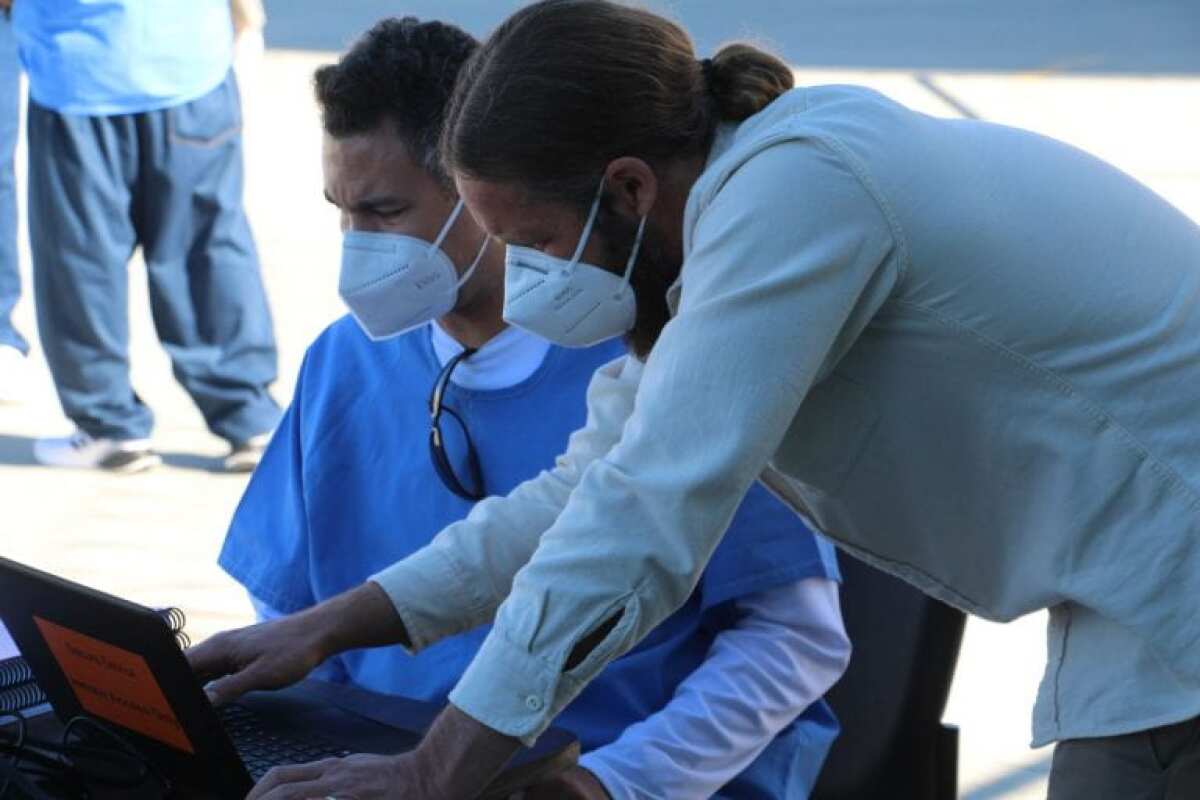UC Irvine receives $1.8 million from state to fund pilot B.A. program for incarcerated students

- Share via
About $1.8 million in state funding will be allocated toward expanding a pilot program helmed by UC Irvine for incarcerated individuals to pursue a bachelor’s degree in sociology, according to an announcement this week by the university.
The program, Leveraging Inspiring Futures Through Educational Degrees, or LIFTED, is the first of its kind in the UC system, though similar programs have allowed prisoners to earn their associate’s degrees from local community colleges since at least 2015.
Cal State Los Angeles was the first in its university system to launch a bachelor’s program for incarcerated individuals. Twenty-five of its participants recently graduated.
The $1.8 million will be used over the next five years for items such as books, instructional materials and staff time. State funding will also be used to subsidize other programs across the UC system.
The funding is expected to close the “support gap” for students affected by the criminal justice system, said Hector Cervantes, director of the UCI Underground Scholars Program, in a statement. “It will expand equity through higher education for a segment of our population that has long been stifled by barrier after barrier to upward mobility.
“We will be equipped to integrate Californians returning to society from incarceration into one of the most prestigious universities in the world,” Cervantes said.
Keramet Reiter, director of the LIFTED program and a UCI professor of criminology, law and society, said about 95% of prison inmates will return to their communities upon completion of their sentence.
“We know that the more education people get, the better that they do,” Reiter said.
She added that putting educational funds toward teaching prisoners at the university level is a public investment as it decreases recidivism. It is also a part of the greater vision of higher education in California, she noted.
“Anyone from anywhere can earn a degree and go to graduate school and not be limited to community college,” said Reiter. “These are all residents of our state by all accounts.”
Planning for the program, which will give inmates at the Richard J. Donovan Correctional Facility in San Diego the opportunity to earn a bachelor’s degree, began in 2018. Arrival of the COVID-19 pandemic delayed its official launch, though the California Department of Corrections and Rehabilitation and UCI signed a memorandum of understanding for the program in 2020.
The program is serving students who earned an associate’s degree in sociology from Southwestern University in Chula Vista. Reiter said the hope is to eventually expand this to all community colleges but that LIFTED is still too early in the development of its infrastructure to do so.
Reiter said the program is presently limited to sociology, though the hope is to eventually expand the scope of offerings.
The university recently admitted 25 inmates as part of its transfer program this spring. Those students will be entering as junior-equivalent transfer students. Classes will be taught at the prison.
Another cohort of students will be admitted in the fall of 2023.
Of LIFTED, Reiter said, “It’s partly about bringing everyone who’s eligible into these opportunities and, secondly, with UCs — it creates a pathway for graduate and professional schools.
“We have four formally incarcerated students in my Ph.D program in criminology. I’ve worked with incarcerated students and have seen them in law school and business. I think just in terms of reducing the stigma associated with incarceration, LIFTED is facilitating people to becoming full-fledged members of society again.
“It’s a really powerful thing to have the UCs involved in prisons so that they can make those connections and bridges,” she said.
All the latest on Orange County from Orange County.
Get our free TimesOC newsletter.
You may occasionally receive promotional content from the Daily Pilot.






